|
We are proud to welcome the newest IGA institutional member, Department of Veterinary Clinical Sciences, City University of Hong Kong.
The Department of Veterinary Clinical Sciences (VCS) was established in March 2020 is the newest department in the Jockey Club College of Veterinary Medicine. Our rapidly growing team of pioneering Faculty, Adjuncts and support staff embrace a vision be Asia's pre-eminent body advancing veterinary clinical science in response to evolving societal needs. The mission of the VCS department is to advance animal health and welfare through cutting edge clinical research, to nurture research-trained, practice-ready, professional veterinary graduates, to establish Hong Kong's first academic postgraduate veterinary residency-training programs and to give back to the local communities through service and outreach. Vision The Department of Veterinary Clinical Sciences was established in March 2020 with the vision to be Asia's preeminent body advancing veterinary clinical science in response to evolving societal needs. Mission The mission of the Department of Veterinary Clinical Sciences has three distinct but interrelated components:
0 Comments
Goats of the World and World of Goats - Emerging from the Shadow of COVID-19 Our recent virtual conference was a wonderful success with many great presentations. Sándor Kukovics and his wonderful team recorded the conference and now the videos of each presentation are available online for IGA members to watch.
Thank you for being an IGA member. We want to thank all our members who voted during our recent election. The ballot contained an excellent group of candidates. We are proud to announce the results to our members first. The IGA Board of Directors for 2021 to 2026 will be:
During a recent virtual meeting, the new Board met and elected:
The new Board appointed Dr. Hector Andrade-Montemayor as an additional Board member to help support their efforts. Additionally, Dr. Beth Miller will return to the Board as Past President. Thank you again for your participation and your continued support of IGA. 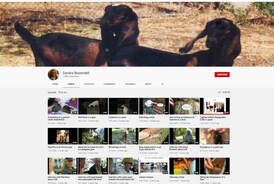 Are you looking for good goat videos that covers issues such as:
Sandra is one of our awesome IGA members and she has a great YouTube channel, https://www.youtube.com/c/SandraBaxendell/videos. Visit her channel now. 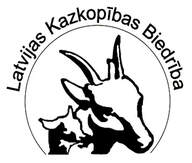 Check out the Latvian Goat Society’s beautiful new website, http://www.latkaza.lv/. Learn more about the Latvian Goat Society and what they do, read this great profile, Announcement - Latvian Goat Society (Latvijas Kazkopības Biedrība) joins IGA. 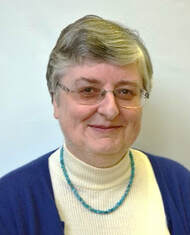 Associate Editor for Nutrition Dr. Sylvie Giger-Reverdin is working as a senior scientist for the French Research Institute in Agriculture Science (INRA), in the INRA-AgroParisTech Research Unit MoSAR (Systemic Modelling Applied to Ruminants), Paris, France. She graduated in Agricultural Science from the Institut National Agronomique Paris-Grignon (France), with specialization in Sciences and Engineering in Animal Science, Nutrition option and received a Master of Science in Nutrition and Feeding of domestic animals from the Paris VI University (France) in 1977. She obtained a Ph.D. in Agricultural Science from the Institut National Agronomique Paris-Grignon (France), with her dissertation titled “Influence of the composition of the concentrate on the nutritive value of diets fed to dairy ruminants.” Her main field of research concerns the nutrition and feeding of ruminants bred in intensive conditions, especially dairy goats, used as a model for dairy cattle. She has been especially involved in research on the nutritive value of concentrates, on the nutritive requirements of goats and on ruminal metabolism. For a couple of years, she has focussed on the effects of feeding behavior, and especially on the relationships between acidosis, feeding behavior and animal welfare in dairy goats. Dr. Sylvie Giger-Reverdin is an IGA member. 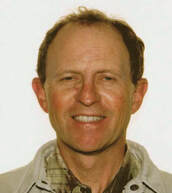 Associate Editor for Production Systems and Sustainability Born in 1956, Jean-Paul Dubeuf obtained in 1977, an "Ingénieur Agronome" Degree in Animal Production and, in 1978, a Masters (Advanced Study Degree - DEA) in Economic Analysis. Jean-Paul DUBEUF is a researcher ("Ingénieur de Recherches") at the French National Institute in Agricultural Research (INRA) in “Science for Action and Development,” in Corte (Corsica). For more than twenty years, he has specialized in the development processes of Small Ruminant (SR) with a special focus on the Mediterranean Area. His recent works have included Social and Environmental Issues, and Societal Changes in the Sustainable Development of SR Production Systems, and Pastoralism and Ecological Transitions. He is studying the implementation of public policies for these activities in several projects at International (with IFAD), National (Morocco) and Regional (Corsica) levels. He has published several applied research articles, review articles and position papers on these themes. Jean-Paul Dubeuf also developed an expertise on the conception and development of an Information System online for the animal production sectors (data basis, documentation, workflow, synthetic analysis) as the Scientific Director of the International Resource Center on Sheep and Goats Dairy sectors (CIRVAL) from 1995 to 2007. He animated and coordinated several Mediterranean scientific sub-networks (FAO/CIHEAM, International Dairy Federation) and projects. From 1984 to 1994, he was an Expert and Consultant to support decision-making activities and extension in the dairy co-operative sector in Central France for the Technical Bureau in Dairy Promotion (BTPL). Jean-Paul is an IGA member and was President of IGA from 2008 to 2012. 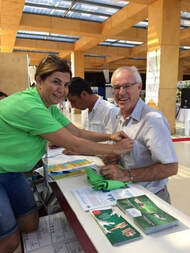 Associate Editor for Hair and Wool Bruce McGregor has devoted his life to animals, environmental management and community organizations. Bruce has training in agriculture, land management, wool science, textiles and organization leadership. He has investigated animal production systems in advanced technology societies and subsistence transhumance societies including products from superfine Merino sheep, Angora goats, cashmere goats, alpacas, and other animals. His initial focus was on the effects of nutrition management on wool and meat production. His extensive collaborations include animal health, genetic improvement, animal welfare, and new industry development. Bruce’s work included substantial efforts in farmer extension training in new industries to translate research findings into practical outcomes. His industry research evolved to include the fundamental drivers of enterprise profitability and animal fiber physical properties. Postgraduate training and subsequent research investigated the role of wool and cashmere fiber quality on textile processing, textile product quality and human sensorial assessment of wool knitwear. Since 1992, Bruce has been a reviewer, a member of the Editorial Advisory Committee and an Associate Editor with Small Ruminant Research. He is the author of over 600 research, technical and advisory publications. He is a long-term member of the International Goat Association and has attended 8 of their International Conferences. Bruce is an IGA member and former member of the Board of Directors. 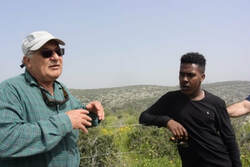 S. Y. Landau earned his B.Sc., M.Sc., and Ph.D. titles at the Faculty of Agriculture of the Hebrew University (Rehovot, Israel). He served as a nutritionist with the Sheep and Goats division of the Extension Service, Ministry of Agriculture (1978-1996) and in 1996, after a post-doc at West Virginia University (Morgantown, WV), he joined the Department of Natural Resources of the Agricultural Research Organization (ARO, the Volcani Center). Yan has spent sabbatical leaves at Utah State University (Logan, UT) and at CIRAD (St Pierre, La Reunion). His research interests are the nutrition of free-ranging domestic and wild herbivores, near-infrared spectrometry (NIRS) in agricultural and food sciences, plant secondary metabolites, self-medication in grazing animals, and integrated rain-fed semi-arid production systems. He was the founder (2012) and leader of the joint-venture of ARO and the Edmond de Rothschild Natural Park, termed “GoatWise” on all aspects of goat grazing in Mediterranean woodland. He was the recipient of grants from national (Ministries of Agriculture, Health, Environmental Quality, Commerce and Industry) and international (US: BARD, IALC, and MERC; France-Israel) sources of funding. He tutored 18 M.Sc. and Ph.D. students, authored or co-authored 88 papers in refereed literature, 15 book chapters, more than 60 popular articles and 120 papers and abstracts in symposia proceedings. He has served as Associate Editor for Nutrition for two terms and been nominated Editor-in-Chief of Small Ruminant Research (Elsevier) in 2016. Yan is an IGA member and serves on the Board of Directors. My Visit to Siddhi, Chitwan, August 25-28, 2018
Written by Yumiko Kawamura, IGA member from Japan Thanks to the wonderful assistance of Heifer International Nepal, I had the opportunity to visit Siddhi, a hillside village in Chitwan, where most residents are from the Chepang people group. The purpose of my visit to Siddhi was to witness the current livelihood status of Chepang and how goat initiatives deployed in 2012 by Heifer International Nepal are progressing. The Chepang are one of 125 ethnic groups found in Nepal. They live in central Nepal along the steep slopes of the Mahabharat range from 45 meters to 1,400 meters above sea level. They are found in Makawanpur, Dhading, Chitwan and Gorka Districts, which are among Nepal’s 75 administrative districts. Based on their low economic status and threatened cultural identity, the Chepang are categorized as a highly marginalized indigenous group by National Foundation for Development of Indigenous Nationalities (NFDIN) (World Vision Advocacy Forum, 2009). According to a 2011 population census, there are 68,399 Chepang people in Nepal among which 34,640 are males and 33,779 females; and more than 97% of Chepang people live in rural areas (CBS, 2011). |
IGA Blog
The International Goat Association promotes goat research and development for the benefit of humankind, to alleviate poverty, to promote prosperity and to improve the quality of life. Archives
May 2024
Categories
All
|
|
International Goat Association
2516 Millbrook Rd., Little Rock, AR72227 USA email: [email protected] -454-1641 |
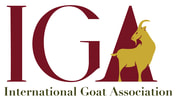
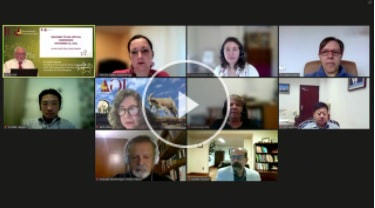
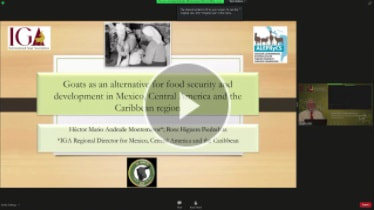
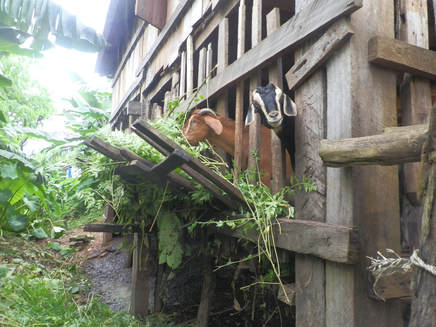
 RSS Feed
RSS Feed